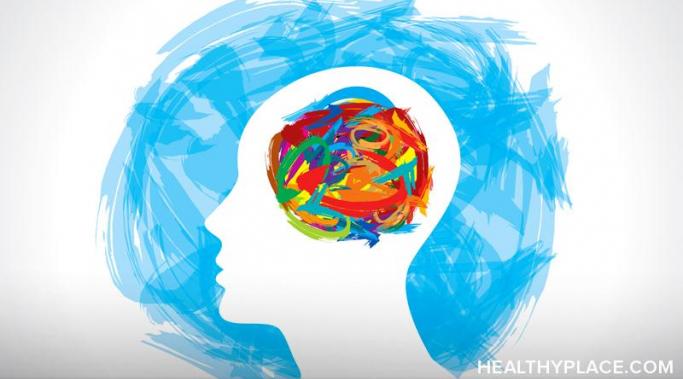Around half of the children diagnosed with attention-deficit/hyperactivity disorder (ADHD) also have oppositional defiant disorder (ODD).1 Oppositional defiant disorder is considered a childhood disorder and is a hard diagnosis to grasp, so here I will address a few of my own questions about the condition: What is ODD? How does it develop? What is ODD's connection to ADHD? Can it occur in adults? Most importantly, how can it be treated?
Symptoms of ADHD
Writing with attention-deficit/hyperactivity disorder (ADHD) poses a challenge to both children and adults living with the disorder. Many with ADHD struggle with dysgraphia, a learning disorder that makes writing difficult on several levels. Problems range from the physical act of writing to organizing essays. After discussing ADHD and creativity in my last post, I wanted to go into more depth about why writing with ADHD can be so hard and what we can do about it.
Attention-deficit/hyperactivity disorder (ADHD) and creativity are frequently linked. It makes sense that ADHD’s surplus of ideas, emotions, and energy might result in creative expression. Growing up, I had a hard time deciding what kind of art to pursue. I danced, acted, played the violin, wrote stories, and littered the house with drawings. It is no surprise that a number of composers (George Gershwin), artists (Leonardo da Vinci), and actors (Ryan Gosling) either have or are speculated to have had ADHD. Let us explore some good things about ADHD, such as why ADHD and creativity are linked and how making art benefits the ADHD brain.
Because obsessive-compulsive disorder (OCD) and attention-deficit/hyperactivity disorder (ADHD) are so different in theory, some doctors argue that they cannot occur together. However, they have a surprisingly high rate of comorbidity, which is when two medical conditions appear together, and many with ADHD report obsessive thoughts and behaviors. Continuing my series of posts about ADHD and comorbid conditions, I would like to discuss the similarities, differences, and possible treatments for OCD and ADHD.
Attention-deficit/hyperactivity disorder (ADHD) and trauma or posttraumatic stress disorder (PTSD) symptoms can overlap, making the combination difficult to correctly diagnose or treat. The two conditions share certain symptoms and can be hard to distinguish. Sometimes PTSD exacerbates ADHD and ADHD slows recovery from PTSD. Though challenging, treating the combination of ADHD and trauma is not insurmountable.
People with attention-deficit/hyperactivity disorder (ADHD) tend to have problems sleeping, even though good sleep helps reduce ADHD symptoms. It's a cycle—insomnia worsens the same adult ADHD symptoms that make it difficult to sleep. Why do people with ADHD frequently suffer from sleep deprivation, and is there anything we can do about it?
While some people with attention-deficit/hyperactivity disorder (ADHD) are wildly successful, a recent study has shown that there could be a connection between ADHD and homelessness. I am fortunate to have friends, family, and other resources to keep a roof over my head, if necessary. Still, I have a faint fear about ending up in a state of destitution. A large part of it is the sense of panic that comes with having ADHD, a creeping fear that, one day, your life will collapse around you. Because of that, it does not surprise me that some people with ADHD become homeless.
I first heard the term "perseveration" in a lecture by psychologist Russell Barkley about attention-deficit/hyperactivity disorder (ADHD) and hyperfocus.1 People with ADHD struggle with boredom, but they can often focus on things they enjoy. In fact, they can focus too much, obsessing over one thing and ignoring other subjects and tasks. Barkley suggests that ADHDers do not hyperfocus, as people with autism do, but perseverate. He defines perseveration as the inability to stop doing an activity at an appropriate time.
Psychiatrist William Dodson developed a term specifically applicable to people with attention-deficit/hyperactivity disorder (ADHD): rejection sensitive dysphoria (RSD). Rejection sensitive dysphoria applies to people with ADHD because ADHDers tend to be particularly sensitive. While the existence of RSD is up for debate, the emotionality of ADHDers is not. Many with the disorder agree that they are extremely sensitive to rejection, criticism, and failure.
Attention-deficit/hyperactivity disorder (ADHD) and premenstrual syndrome (PMS) are a tough combination. Many women with ADHD also suffer from PMS, which can be severe enough to resemble premenstrual dysphoric disorder (PMDD), an extreme form of PMS. PMS impacts women's mental health and I find that my ADHD symptoms worsen right before my period. There is actually a scientific reason for this as hormones play a major role in ADHD.









